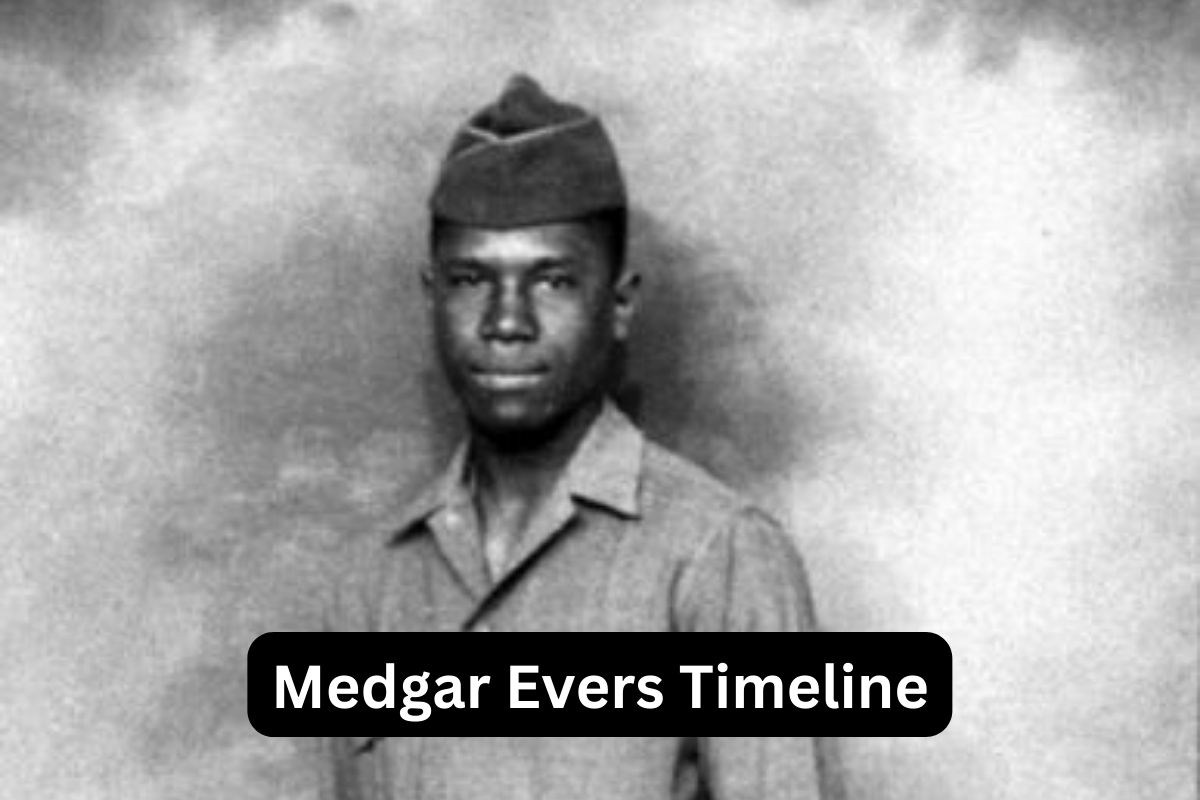Medgar Evers was an African American civil rights activist who played a significant role in the fight against racial injustice in the United States.
Born in 1925 in Mississippi, Evers experienced firsthand the pervasive discrimination and segregation that defined the Jim Crow era.
He became an influential figure in the Civil Rights Movement, working as a field secretary for the NAACP and dedicating his life to fighting for equal rights and opportunities for African Americans.
Tragically, Evers was assassinated in 1963, but his legacy continues to inspire generations of activists in the ongoing struggle for justice and equality.
| Year | Event |
|---|---|
| 1925 | Medgar Wiley Evers is born in Decatur, Mississippi. |
| 1943 | Evers enlists in the United States Army. |
| 1952 | Evers graduates from Alcorn Agricultural and Mechanical College. |
| 1954 | Evers becomes an NAACP field secretary in Mississippi. |
| 1955 | Evers investigates the murder of Emmett Till. |
| 1961 | Evers becomes the first NAACP field secretary for Mississippi. |
| June 12, 1963 | Evers is assassinated outside his home in Jackson, Mississippi. |
| 1964 | Byron De La Beckwith is arrested for Evers’ murder but goes through two mistrials. |
| 1994 | Beckwith is finally convicted of Evers’ murder. |
| 2004 | The Medgar Evers Home Museum opens in Jackson, Mississippi. |
| June 28, 2023 | The Medgar and Myrlie Evers Institute is established. |
Timeline of Medgar Evers
1925 – Medgar Wiley Evers is born in Decatur, Mississippi
Medgar Wiley Evers is born in Decatur, Mississippi. He grows up in a racially segregated society, where African Americans face systemic discrimination and unequal treatment.
1943 – Evers enlists in the United States Army
Evers enlists in the United States Army during World War II. He serves in Europe as part of the segregated 93rd Infantry Division.
Also Read: Facts About Medgar Evers
Evers’ experiences in the military expose him to a broader perspective on racial equality and strengthen his commitment to fighting for civil rights.
1952 – Evers graduates from Alcorn Agricultural and Mechanical College
Evers graduates from Alcorn Agricultural and Mechanical College in Mississippi with a degree in business administration.
Also Read: Accomplishments of Medgar Evers
During his time at Alcorn, Evers becomes involved in activism and joins various student organizations advocating for racial equality.
He develops leadership skills and a deep understanding of the challenges faced by African Americans in Mississippi.
1954 – Evers becomes an NAACP field secretary in Mississippi
Evers becomes a field secretary for the National Association for the Advancement of Colored People (NAACP) in Mississippi.
As a field secretary, he travels extensively throughout the state, working to advance civil rights and equality for African Americans.
1955 – Evers investigates the murder of Emmett Till
Evers investigates the brutal murder of Emmett Till, a 14-year-old African American boy who was lynched for allegedly whistling at a white woman.
Evers’ involvement in the case brings national attention to the heinous crime and the racial injustices prevalent in the Deep South
1961 – Evers becomes the first NAACP field secretary for Mississippi
Evers is appointed as the first NAACP field secretary for Mississippi. In this role, he focuses on voter registration efforts among African Americans, as well as challenging racial segregation in public facilities such as schools and transportation.
June 12, 1963 – Evers is assassinated outside his home in Jackson, Mississippi
Tragically, Medgar Evers is shot and killed outside his home in Jackson, Mississippi. His assassination sparks outrage and serves as a rallying point for the Civil Rights Movement. Evers’ death highlights the risks and dangers faced by activists in their fight against racial inequality.
1964 – Byron De La Beckwith is arrested for Evers’ murder but goes through two mistrials
Byron De La Beckwith, a white supremacist, is arrested for the murder of Medgar Evers. However, two trials in 1964 end in mistrials due to all-white juries, failing to secure justice for Evers and his family.
The case becomes a symbol of the systemic racism and bias that African Americans encountered within the justice system.
1989 – The Medgar and Myrlie Evers Institute is established
The Medgar and Myrlie Evers Institute is established. The institute aims to honor the legacies of Medgar Evers and his wife, Myrlie Evers-Williams, who was also a prominent civil rights activist.
The institute continues their work by promoting civil rights, social justice, and racial equality through education, advocacy, and community engagement.
1993 – The Medgar Evers Home Museum opens in Jackson, Mississippi
The Medgar Evers Home Museum opens in Jackson, Mississippi. The museum is located at Evers’ former residence, which serves as a memorial to his life and accomplishments.
It provides visitors with an opportunity to learn about Evers’ role in the Civil Rights Movement and the ongoing fight for equality.
1994 – Beckwith is finally convicted of Evers’ murder
After three decades, a new trial is held, and Byron De La Beckwith is finally convicted of the murder of Medgar Evers. The long-overdue conviction brings some measure of justice and closure for Evers’ family and supporters.
